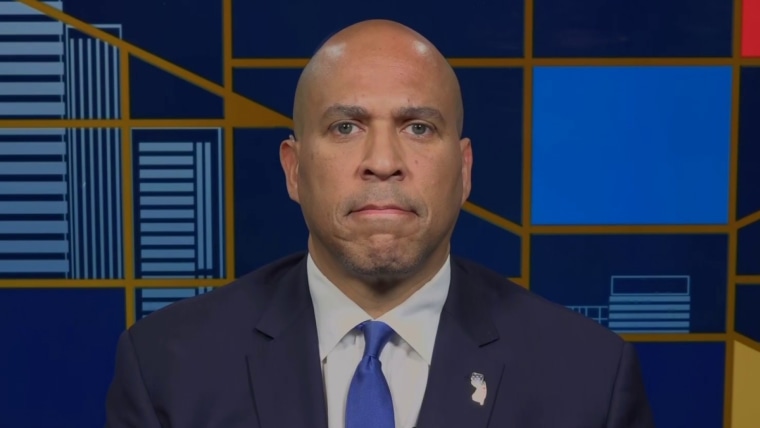Newly elected Democratic National Committee chair Ken Martin announced Friday that the DNC will launch the “People’s Cabinet.” In spirt at least, it’s a kind of American version of Britain’s “Shadow Cabinet,” which gives a minority party a platform for its ideas. With Republicans holding Congress and the White House, Democrats find themselves completely blocked from Washington’s levers of power, but if executed correctly, the DNC’s “People’s Cabinet” could be a worthy response to frustrated Democrats demanding that their leaders do more to oppose President Donald Trump’s agenda.
In announcing the People’s Cabinet, the DNC contrasted Trump’s largely unqualified panel of advisers that’s chock-full of billionaires and the “experts on the economy, health care, working families and communities, public safety, national security, and foreign policy” it will put forth. Martin said he’s tapping people who “will equip communities with the reliable, accurate information they need to fight back against the worst of the Trump and Republican agenda.” They’ll be putting out social media content, holding media briefings and headlining town halls in GOP-held House districts that critique — and, ideally, offer alternatives to — Trump’s agenda.
Democrats’ plan to present their own leaders and experts to focus on specific policy areas closely tracks with the United Kingdom’s Shadow Cabinet.
Democrats’ plan to present their own leaders and experts to focus on specific policy areas closely tracks with the United Kingdom’s Shadow Cabinet. The leader of the party with the second-most seats in the House of Commons serves as shadow prime minister and appoints members who “shadow” their assigned Cabinet members and tell the public how their party would run things if returned to power. It’s a relatively recent development in the British system that gives the minority party the ability to plan for a return to governing.
On this side of the Atlantic, House Minority Leader Hakeem Jeffries and Senate Minority Leader Chuck Schumer, both New York Democrats, have been more focused on serving as legislative leaders than offering a political alternative to Trump. While a Monday event by Sen. Adam Schiff, D-Calif., and Rep. Jamie Raskin, D-Md., spotlighting alleged abuses at the Justice Department is an example of “shadow hearings” Democrats have held, because they’re not official, party leaders have to rely instead on the willing participation of those called to testify.

There’s likewise nobody, then, with the authority to set the party’s agenda as an opposition force and name, for example, a shadow defense secretary to challenge and contradict Defense Secretary Pete Hegseth. Our political parties generally use the presidential primary system to determine their directions and follow the lead of whichever candidate manages to win the nominations. That means there’s little hope of a united message from the opposition party until the primary field has been cleared.
There’s likewise nobody, then, with the authority to set the party’s agenda as an opposition force
Trump’s grasp on the Republican Party was uncertain after he was voted out of office in 2020, but he quickly refilled the power vacuum by making Mar-a-Lago an unofficial hub for party strategy. Various think tanks and members of Congress, as well as the Republican National Committee, in turn became an extension of Trump’s political operation. In contrast, the Democratic Party has been relatively aimless following Vice President Kamala Harris’ loss. It lacks a similar guiding star.
The People’s Cabinet could fill some of that yawning void. There are still plenty of details left to fill in, though, and the structure is much looser than the U.K.’s formal Shadow Cabinet’s assignments. Rather than tapping specific shadow secretaries to serve throughout Trump’s term and potentially fill those roles in the next Democratic administration, a more ad-hoc system appears to be planned.
For example, in the face of the latest jobs report and Trump’s disastrous tariffs, former Labor Secretary Robert Reich and former acting Labor Secretary Julie Su joined a media call Friday to hammer out Trump’s economic agenda. But there’s no telling who might be speaking on that front next month. The question of who is setting the Democratic Party’s economic policy moving forward is still left unanswered. Likewise, the only unifying vision that the party has collectively agreed to remains the platform Harris and President Joe Biden helped craft ahead of last year’s loss to Trump.
Without a bright outline for the course the party is taking, there’s a chance the People’s Cabinet comes across as more smoke than fire and fails to reignite the base. But the potential is there for Martin and the DNC to craft a winning platform years before the next presidential election — and before next year’s midterms. It’s an opportunity that the Democrats would be wise not to squander.

